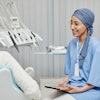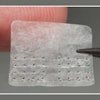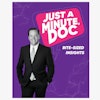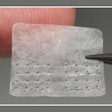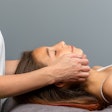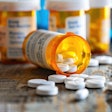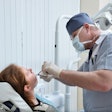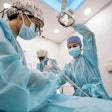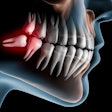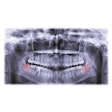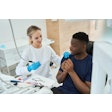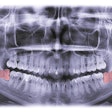TikTok is one of the various social media platforms that the public is continuously watching. Research shows that TikTok users check the site frequently throughout the day, spending about an hour each day on the platform. Furthermore, TikTok users typically range from teenagers to young adults, but its main users are those age 35 and younger.
Anyone can post a video about any subject for their audience on TikTok. Videos can range from tips and tricks to the latest fashion trends, popular recipes, and even healthcare advice. Surprisingly, the healthcare advice videos are not always fact-checked by medical professionals, and the dental field is not immune to TikTok videos.
 Tracee Dahm.
Tracee Dahm.
While some audience members understand they should consider the source when looking up information, some TikTok members rely solely on it and its search engines to find information relevant to them, unaware that many of the videos hosted by the service are not as factual as one would like.
When it comes to dental videos on TikTok, sometimes the videos show a patient's perspective at a routine dental appointment. Other times, the videos show various dental products being used in an oral care routine. More recently, a TikTok video showed patients how to have better results after a tooth or teeth extraction(s). The videos claimed that patients should drink pineapple juice the night before their third-molar extraction appointment to have less swelling.
The social media videos offering advice about healing from third-molar extractions recommend that a dental patient drink 64 fl. oz. of pineapple juice the night before their procedure. Most patients undergoing dental surgery are advised not to eat and drink for a certain number of hours before their scheduled appointment time, thus, why the videos recommend consuming pineapple juice the night before the procedure.
Pineapple juice is a hot topic in social media videos because of its long history with holistic healing in Central and South America. Specifically, the protein-digesting enzyme bromelain is found in a high concentration in pineapples, which is why pineapples are considered the magical fruit for healing postoperatively from dental extractions.
Bromelain has been known to provide some health benefits, including anti-inflammatory and analgesic properties, decongestive properties in the nasal passages, healing from burns and ulcers, and possibly the ability to fight cancer. In addition, pineapples contain vitamin C, so while the dental patient is consuming pineapple juice for bromelain, they will also get vitamin C, which is known to help the human body heal from infections.
While it sounds relatively harmless, ingesting a large amount of pineapple juice before a dental extraction may not be a sound idea, and dental professionals would not necessarily recommend this trend.
The first reason that one should not consume 64 fl. oz. (or more) of pineapple juice before a dental extraction is that bromelain -- the same enzyme that is supposed to help reduce inflammation -- has also been shown to stop blood platelets from clumping together, thus blood clots may not form due to bromelain's anticoagulant properties. A dental patient who has had a tooth extraction needs their blood to clot to protect the extraction site and start the healing process.
Furthermore, medical and dental professionals are worried that the extreme consumption of pineapple juice could lead to a vitamin C overdose, which would ultimately result in an upset stomach, with possible diarrhea and nausea. Bromelain also interacts with medications such as antibiotics and sedatives, both of which may be dispensed by a dentist before and after a tooth extraction, depending on the patient's needs. Finally, one study showed that for a dental patient to receive all the wonderful properties of bromelain, they need to ingest bromelain in pill form and not as juice.
Dental professionals should always do their best to help guide their patients when it comes to deciding what is the best course of treatment for their medical needs. Always reply honestly, with no judgment, and use science to help answer a patient's questions. Dental professionals should stay abreast of social trends so they can truly understand when a patient inquires about a "new" remedy or event they saw on social media and how it might affect them.
Editor's note: References are available upon request.
Tracee S. Dahm, MS, RDH, is an adjunct clinical instructor for the North Idaho College School of Dental Hygiene in Coeur d’Alene, ID. She also works in private practice. Dahm has published articles in several dental journals, magazines, and a textbook. Her research interests include trends in dental hygiene and improving access to dental care for the underserved. She can be reached at [email protected].
The comments and observations expressed herein do not necessarily reflect the opinions of DrBicuspid.com, nor should they be construed as an endorsement or admonishment of any particular idea, vendor, or organization.
